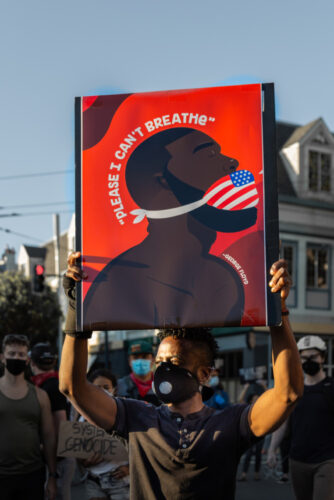City DREAM is Here to Help Undocumented Students
By Eleni Balakrishnan
City College’s resource center for undocumented students and those facing immigration issues, City DREAM, is working to ensure its target community knows it’s still here to help, even from a distance.
Between Oct. 19 and 23, City DREAM held a series of virtual events and workshops in solidarity with its undocumented student population, for the Community College League of California’s fourth annual Undocumented Student Action Week. Around 500 undocumented students attend City College, estimated Jacqueline Yañez Martinez, City DREAM’s coordinator.
During a ‘Know Your Rights’ workshop on Oct. 22, two legal representatives from the Immigration Institute of the Bay Area (IIBA) advised the City College community on the free legal services and case consultations they provide through a 2019 partnership with the school. IIBA is a local nonprofit, with a 102-year history providing immigration-related legal services and civic engagement opportunities to the Bay Area.

During the workshop, Leslie Hernandez, a paralegal with IIBA explained how everyone, regardless of immigration status, has constitutional rights while within US borders. She and Justin Skinner, an immigration attorney with IIBA, also explained how to prepare for interactions with Immigration and Customs Enforcement (ICE) and police.
“Even though it is sometimes unknown and scary times,” Hernandez said, she hopes the session helped people understand “they don’t have to be fearful, and know that they can live securely in this country.” With that understanding, she hopes more people keep going to school, regardless of their immigration status.
According to Hernandez, IIBA typically serves 10,000 clients a year in the Bay Area. Due to COVID-19 restrictions, IIBA currently provides phone, mail, and email consultations to students in lieu of meeting on college campuses. “Even through remote [meetings], we have been able to help a handful of people,” Hernandez said, though she was uncertain how their numbers would change this year with all seven IIBA offices closed.
City DREAM, only founded in the fall 2019 semester, had difficulty reaching students at first, Martinez said. “We were located in front of the bookstore, so that wasn’t a proper space for undocumented students — it was open glass, and there was no confidentiality when students came in.”
In March, when City DREAM found a safer space, the campus closed and all City DREAM services were relegated to Zoom. The move online meant plans had to change, Martinez said. Now, there is a virtual help desk where anyone can enter and ask questions of an academic counselor or a financial aid specialist, but she said most interactions with students now take place over email.
Likewise, Martinez said the virtual events for the statewide week of action were also a bit different. “This year, the state focused more on staff, faculty, and administrators on how they can support undocumented students,” she said.
City DREAM also does outreach to instructors on how to support undocumented students, phonebanking to students, and is now expanding its services to other campuses. Through the expansion, Martinez hopes to dispel misconceptions that services are available only to students at Ocean Campus. “We also have to bring out the word that [City DREAM] is open to all students,” she said.
Other events in the Week of Action included webinars on paying for college and professional development, a viewing of the documentary ‘Documented,’ and a presentation called ‘We Are More Than Tragic Stories’ by an undocumented poet, Yosimar Reyes. Martinez said Reyes spoke to empower undocumented students to use their voice as students and immigrants.
